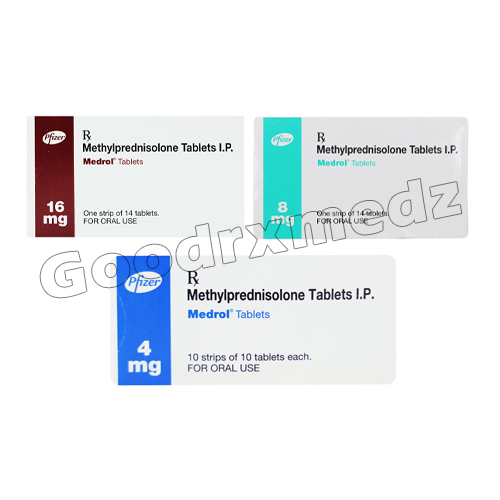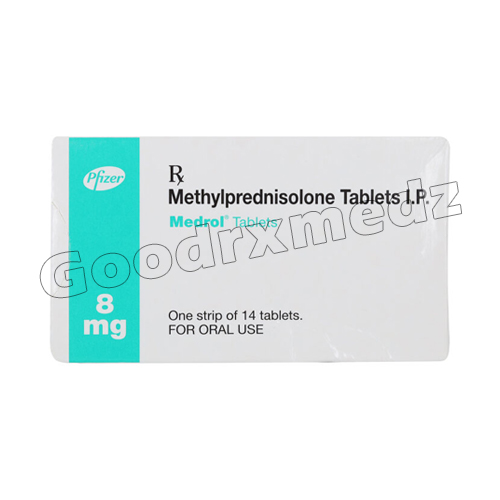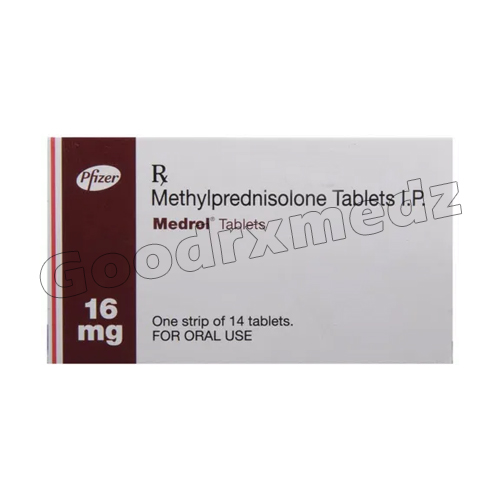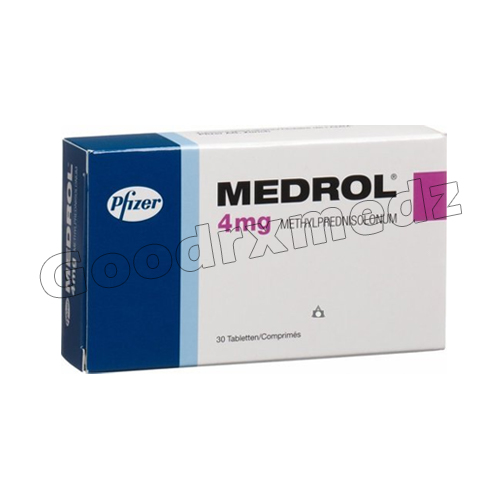What Is Medrol?
Medrol, also known as methylprednisolone, is a type of steroid medication used to treat various medical conditions. It is primarily used to reduce inflammation and suppress the immune system. Medrol is commonly prescribed to treat conditions such as arthritis, lupus, psoriasis, ulcerative colitis, allergic disorders, gland (endocrine) disorders, and conditions that affect the skin, eyes, lungs, stomach, nervous system, or blood cells.
Uses Of Medrol
This Tablets Are Used To Treat Various Medical Conditions, Including:
- Rheumatologic conditions such as arthritis, lupus, and psoriasis
- Hematologic conditions such as anemia and blood clots
- Endocrine conditions such as adrenal insufficiency
- Dermatologic conditions such as skin rashes and allergic reactions
- Immunologic conditions such as autoimmune disorders
- Ophthalmologic conditions such as eye inflammation and vision problems
- Conditions of the respiratory system, such as asthma and chronic obstructive pulmonary disease (COPD).
- Gastrointestinal conditions such as ulcerative colitis and Crohn’s disease
- Nervous system conditions such as multiple sclerosis and seizures
- Blood cell disorders such as anemia and low white blood cell count
Benefits Of Medrol
This Tablet Has Several Benefits, Including:
- Reduces inflammation and swelling
- Suppresses the immune system to prevent rejection of transplanted organs
- Relieves symptoms of allergic reactions
- Acne and eczema are treated with this product
- Reduces the risk of organ rejection in transplant patients
- Treats respiratory conditions such as asthma and COPD
Dosage
The dosage of Medrol Tablet varies depending on the medical condition being treated and the patient’s response to the medication. The initial dosage may range from 4 mg to 48 mg per day, and the maintenance dosage may be adjusted based on the patient’s response.
Other Strength:
Medrol 4 Mg | 8 Mg | 10 Mg | 16 Mg
Taking Medrol
Medrol should be taken exactly as directed by a healthcare provider. It is usually taken orally, and the dosage may be adjusted based on the patient’s response. Patients should not stop taking this tablet suddenly, as this can lead to withdrawal symptoms. Instead, the dosage should be gradually tapered under the guidance of a healthcare provider.
Side Effects Of Medrol
These Pills Can Cause Several Side Effects, Including:
- Skin problems such as acne, dry skin, and easy bruising
- Slow wound healing
- Fat distribution or shape changes
- Nausea and vomiting
- Headache and dizziness
- Sleep problems
- Mood changes
- Increased sweating
- Serious side effects such as low potassium levels, high blood pressure, seizures, and vision problems
Warnings Of Medrol
This Medicine Has Several Warnings, Including:
- Increased risk of infections
- Increased risk of osteoporosis
- Increased risk of adrenal insufficiency
- Increased risk of psychiatric problems
- Increased risk of eye problems
- Increased risk of gastrointestinal problems
- Increased risk of allergic reactions
It is essential to consult a healthcare provider before taking Medrol, especially if you have a history of certain medical conditions or are taking other medications. Additionally, patients should be monitored regularly for side effects and to adjust the dosage as needed.
| Active ingredient | Methylprednisolone |
|---|---|
| Form | Tablets |
| Prescription | Required |
| Shipping | 6 To 15 days |












Reviews
There are no reviews yet.